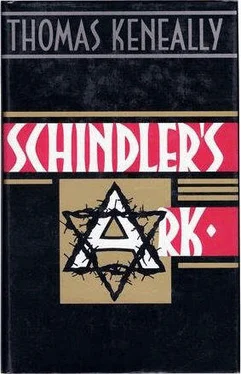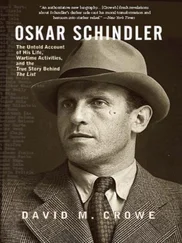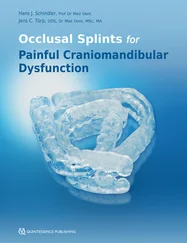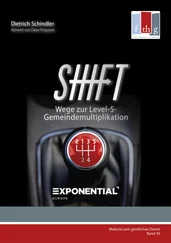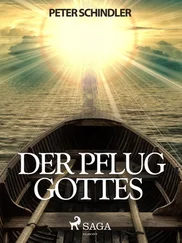She turned and found her mother and pulled at her uniform. Then Regina looked, went through the same cruel cycle of identification, and began to wail. The door of the car had been shut by now; they were all packed close in near darkness, and every gesture, every scent of hope or panic, was contagious. All the others took up the wailing too. Manci Rosner, standing near her sister-in-law, eased her away from the opening, looked, saw her son waving, and began keening too.
The door slid open again and a burly NCO asked who was making all the noise. No one else had any motive to come forward, but Manci and Regina struggled through the crush to the man. “It’s my child over there,” they both said. “My boy,” said Manci. “I want to show him that I’m still alive.”
He ordered them down onto the concourse. When they stood before him, they began to wonder what his purpose was. “Your name?” he asked Regina. She told him and saw him reach behind his back and fumble under his leather belt. She expected to see his hand appear holding a pistol. What it held, however, was a letter for her from her husband. He had a similar letter from Henry Rosner, too. He gave a brief summary of the journey he’d made from Brinnlitz with their husbands. Manci suggested he might be willing to let them get down under the car, between the tracks, as if to urinate. It was sometimes permitted if trains were long delayed. He consented.
As soon as Manci was down there under the carriage, she let out the piercing Rosner whistle she had used on the Appellplatz of Płaszów to guide Henry and Olek to her. Olek heard it and began waving. He took Richard’s head and pointed it toward their mothers, peering out between the wheels of the train. After wild waving, Olek held his arm aloft and pulled back his sleeve to show a tattoo like a varicose scrawl along the flesh of his upper arm. And of course the women waved, nodded, applauded, young Richard also holding up his tattooed arm for applause. Look, the children were saying by their rolled-up sleeves. We have permanence.
But between the wheels, the women were in a frenzy.
“What’s happened to them?” they asked each other. “In God’s name, what are they doing here?” They understood that there would be a fuller explanation in the letters. They tore them open and read them, then put them away and went on waving.
Next, Olek opened his hand and showed that he had a few pelletlike potatoes in his palm.
“There,” he called, and Manci could hear him distinctly. “You don’t have to worry about me being hungry.”
“Where’s your father?” Manci shouted.
“At work,” said Olek. “He’ll be back from work soon. I’m saving these potatoes for him.”
“Oh, God,” Manci murmured to her sister-in-law. So much for the food in his hand. Young Richard told it straighter. “Mamushka, Mamushka, Mamushka,” he yelled, “I’m so hungry!”
But he too held up a few potatoes.
He was keeping them for Dolek, he said. Dolek and Rosner the violinist were working at the rock quarry.
Henry Rosner arrived first. He too stood at the wire, his left arm bared and raised. “The tattoo,” he called in triumph. She could see, though, that he was shivering, sweating and cold at the same time. It had not been a soft life in Płaszów, but he’d been allowed to sleep off in the paint shop the hours of work he’d put in playing Lehar at the villa. Here, in the band which sometimes accompanied the lines marching to the “bathhouses,” they didn’t play Rosner’s brand of music.
When Dolek turned up, he was led to the wire by Richard. He could see the pretty, hollow-faced women peering out from the undercarriage. What he and Henry dreaded most was that the women would offer to stay. They could not be with their sons in the male camp. They were in the most hopeful situation in Auschwitz there, hunkered under a train that was certain to move before the day was over. The idea of a clan reunion here was illusory, but the fear of the men at the Birkenau wire was that the women would opt to die for it. Therefore Dolek and Henry talked with false cheer—like peacetime fathers who’d decided to take the kids up to the Baltic that summer so that the girls could go to Carlsbad on their own. “Look after Niusia,” Dolek kept calling, reminding his wife that they had another child, that she was in the car above Regina’s head.
At last some merciful siren sounded in the men’s camp. The men and boys now had to leave the wire. Manci and Regina climbed limply back into the train and the door was locked. They were still. Nothing could surprise them anymore.
The train rolled out in the afternoon. There were the usual speculations. Mila Pfefferberg believed that if the destination was not Schindler’s place, half the women crammed in the cars would not live another week. She herself expected that she had only days left. The girl Lusia had scarlet fever. Mrs. Dresner, tended by Danka but leached by dysentery, seemed to be dying.
But in Niusia Horowitz’ car, the women saw mountains and pine trees through the broken slat. Some of them had come to these mountains in their childhood, and to see the distinctive hills even from the floor of these putrid wagons gave them an unwarranted sense of holiday. They shook the girls who sat in the muck staring. “Nearly there,” they promised. But where? Another false arrival would finish them all.
At cold dawn on the second day, they were ordered out. The locomotive could be heard hissing somewhere in the mist. Beards of dirty ice hung from the understructures of the train, and the air pierced them. But it was not the heavy, acrid air of Auschwitz. It was a rustic siding, somewhere. They marched, their feet numb in clogs, and everybody coughing. Soon they saw ahead of them a large gate and, behind it, a great bulk of masonry from which chimneys rose; they looked like brothers to the ones left behind in Auschwitz. A party of SS men waited by the gate, clapping their hands in the cold. The group at the gate, the chimneys—it all looked like part of that sickening continuum. A girl beside Mila Pfefferberg began to weep. “They’ve brought us all this way to send us up the chimney anyhow.”
“No,” said Mila, “they wouldn’t waste their time. They could have done all that at Auschwitz.” Her optimism was, however, like that of the girl Lusia—she couldn’t tell where it came from. As they got closer to the gate, they became aware that Herr Schindler was standing in the midst of the SS men. They could tell at first by his memorable height and bulk. Then they could see his features under the Tyrolean hat which he’d been wearing lately to celebrate his return to his home mountains. A short, dark SS officer stood beside him. It was the Commandant of Brinnlitz, Untersturmführer Liepold. Oskar had already discovered—the women would discover it soon—that Liepold, unlike his middle-aged garrison, had not yet lost faith in that proposition called “the Final Solution.” Yet though he was the respected deputy of Sturmbannführer Hassebroeck and the supposed incarnation of authority in this place, it was Oskar who stepped forward as the lines of women stopped. They stared at him. A phenomenon in the mist. Only some of them smiled. Mila Pfefferberg, like others of the girls in the column that morning, remembers that it was an instant of the most basic and devout gratitude, and quite unutterable. Years later, one woman from those lines, remembering the morning, would face a German television crew and attempt to explain it. “He was our father, he was our mother, he was our only faith. He never let us down.”
Then Oskar began to talk. It was another of his outrageous speeches, full of dazzling promises. “We knew you were coming,” he said. “They called us from Zwittau. When you go inside the building, you’ll find soup and bread waiting for you.” And then, lightly and with pontifical assurance, he said it: “You have nothing more to worry about. You’re with me now.”
Читать дальше
